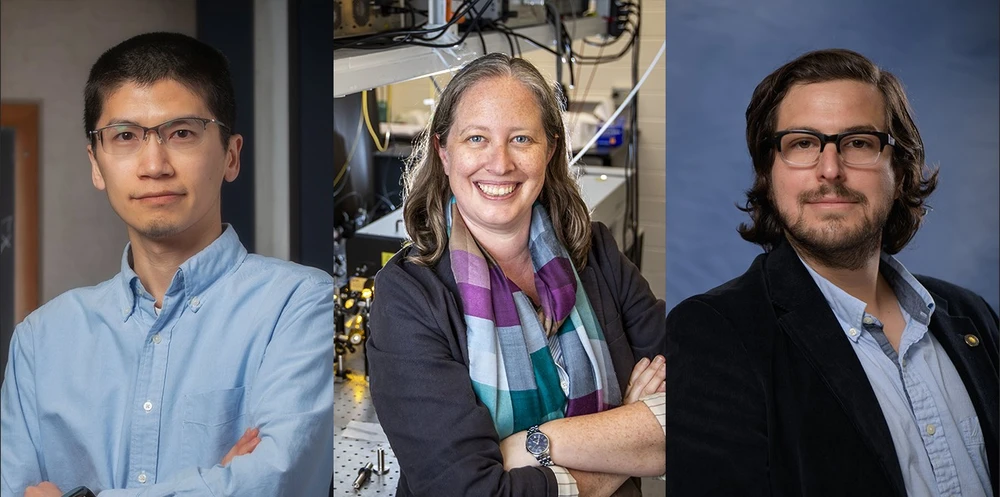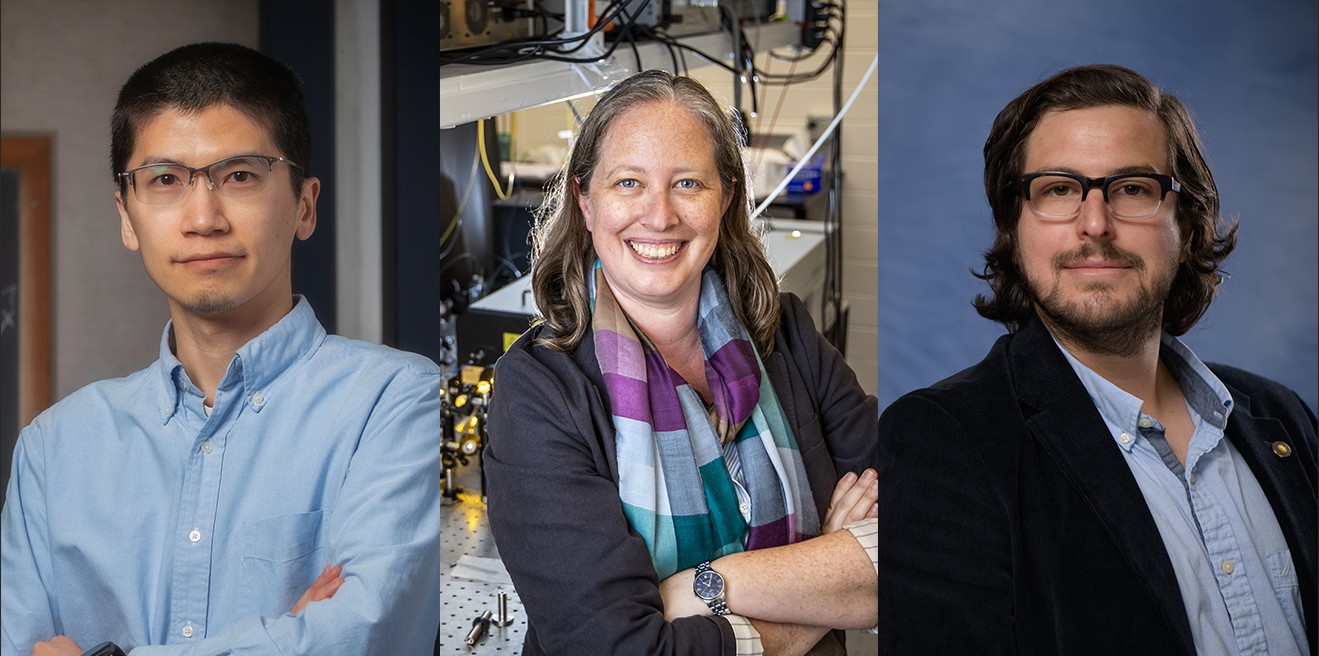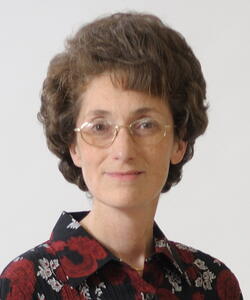

Illinois Professors Mikael Backlund, Pengjie Wang, and Elizabeth Goldschmidt are participating this month in the 2025 Quantum Matter and Information (QMI) Scialog meeting.
Mikael Backlund was named a Scialog Fellow along with Wang and Goldschmidt earlier this year by the Research Corporation for Scientific Advancement. With this appointment, Backlund, Wang, and Goldschmidt join a distinguished group of nearly 20 former Scialog Fellows from the University of Illinois. And llinois Chemistry and Physics Professor Nancy Makri is one of eight Facilitators who will lead discussions at the meeting.
A portmanteau of “science” and “dialogue,” the Scialog program brings together early-career faculty to discuss some of the biggest unsolved questions at the forefront of scientific knowledge. Through scientifically themed meetings called initiatives, the program aims to spark collaborations among U.S. and Canadian scientists across different disciplines, particularly among those who have never worked together. Selection for participation in Scialog is competitive: only 60 Fellows were chosen for this latest initiative.
Scialog is organized by the Research Corporation for Science Advancement (RCSA), a philanthropic organization dedicated to supporting basic scientific research and education. Established in 1912, the RCSA is the second-oldest charitable foundation in the U.S. and supports scientific activities through its fellowship programs, conferences, and grants.

Makri said that the RCSA distinguishes itself from other funding agencies in several ways.
“The RCSA provides grants to support unconventional and often risky research before projects are ready for funding by traditional agencies," she said. "Moreover, they recognize the importance of education and scholarship and organize conferences centered on both of these aspects, encouraging Fellows to think outside the box by supporting ideas that would ordinarily be considered infeasible—which is unusual.”
The upcoming October QMI meeting marks the first iteration of a three-year initiative at the intersection of materials science and quantum information science—particularly fitting, as 2025 has been designated the International Year of Quantum Science and Technology by the United Nations. This convergence is no coincidence: quantum materials constitute the hardware for emerging technologies such as quantum computers; conversely, quantum information science could accelerate the discovery of new materials and even new physics by enabling new ways to simulate the complex interactions of quantum matter.
Illinois’ three newest Scialog Fellows will bring a broad range of expertise to the new initiative: Wang fabricates 2D quantum materials that host technologically useful quantum phases; Goldschmidt manipulates light to store and transmit quantum information encoded in photons; and Backlund uses the principles of quantum mechanics to build ultra-sensitive instruments for microscopy and spectroscopy applications.
During the meeting, Fellows will enter discussions with each other and brainstorm potential directions for the future of their fields. They will also pitch ideas for joint research projects for a chance to win a grant to implement their ideas and formalize new collaborations.
Goldschmidt and Backlund appreciate the diverse disciplines included in the new initiative, whose theme has traditionally been physics-dominated.
“Up until recently, this field was confined solely to physics departments,” Goldschmidt noted. “But now we're realizing that we really need to bring in techniques and understanding from other fields.”
Illinois Chemistry and Physics Professor Nancy Makri is one of eight Facilitators, senior scientists who will oversee the Scialog Fellows’ discussions. Makri, a theoretical physical chemist, will bring her expertise in quantum dynamics to this role.
Backlund, a physical chemist, agreed, and added, “The Scialog organizers have made a deliberate effort to include a lot of chemists in addition to physicists and engineers, which isn’t necessarily true for every meeting in quantum information science. As someone with a foot in both worlds, I look forward to interfacing with this cross-section of expertise all in one place.
“There aren’t really any other programs like this. Scialog’s focus on early-career scientists, the multiyear aspect, and the mechanisms for turning discussion directly into support for research are unique.”
In her own research, Makri studies how quantum systems change over time and devises models and numerical algorithms to simulate such changes. She is eager to serve as a Facilitator, a role designated for senior scientists whose research domains closely intersect with the themes discussed.
“I’ll be using my expertise to start conversations on some hot problems and to motivate Fellows who have complementary backgrounds to collaborate and come up with novel ideas,” Makri said. “I’m looking forward to discussing everything quantum—from many-body quantum effects and decoherence to qubits, quantum sensing, and quantum computing.”
The QMI Scialog couldn’t have come at a better time.
“It’s a really exciting time for quantum science,” Goldschmidt said. “There's a lot of industrial research happening these days in both large and small companies, but there's still a ton of work to be done in academia.”
Wang added, “This Scialog will be a great chance to meet colleagues from other disciplines and discuss what we think is possible, our visions for the future, and how we’re getting there. The emerging field of quantum materials and information shows a lot of promise going forward.”
The QMI Scialog meeting will take place on October 16–19, 2025, at the Westin La Paloma Resort in Tucson, Arizona.